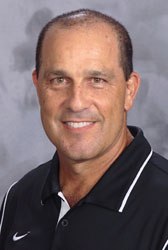by Keith Zafren
My wife and I separated three years ago. Honestly, it could have happened sooner, but for several years I was paralyzed by fear. I wanted to avoid hurting my three boys the way my dad’s leaving had hurt me, and I was really afraid that I might lose touch with my children.
It’s been a hard transition for all of us. At the same time, some really great things have happened. One is that my love for my kids is as strong as ever—and they know it. And their love for me has grown. Our relationships are strong.
 I’ve learned some things about being a great divorced dad, especially about communication. Here are my 5 best pieces of advice for fellow divorced dads about talking with your kids after the divorce—things your kids need to hear from you.
I’ve learned some things about being a great divorced dad, especially about communication. Here are my 5 best pieces of advice for fellow divorced dads about talking with your kids after the divorce—things your kids need to hear from you.
1. “Nothing is off limits.” Let your kids know it’s okay to talk about the divorce, and open doors for this to happen. I know many of us men aren’t great at talking about our feelings, or those of our children. But this is crucial to helping them (and ourselves) through the most difficult parts of the inevitable life-altering changes that divorce brings.
I’ve made this commitment to myself, and I communicate it to my boys: No conversation or question is out of bounds. I may not be able to fully answer every question, but I’ll do my best to address it while still trying to honor and respect their mother.
2. “It’s been a while since we talked about this.” I’m very intentional about bringing up this topic at regular intervals—every month or so for the first six months, and then less often as time goes on and everyone begins to adjust to the new normal. But even now, three years later, I still occasionally bring it up and ask. I want to stay current with how my three teenage sons are doing.
For example, the other night during dinner, I simply said, “Hey guys, it’s been a while since we talked about Mom and Dad’s divorce, and with all the changes over the past few years, I just want to check in and see how you’re feeling about it. It’s always okay to talk with me about anything you may be thinking, feeling, or going through.” I then gave each of them time to express themselves, ask questions, and simply talk freely. We discussed it for a bit, and they seemed satisfied.
Then I assured them of how much I love them, miss them, and want to be a good dad for them. It was a little bit awkward, but mostly it felt right. And my boys all thanked me and said, “We do want to talk about it, but we never know how to start.” Your kids may feel the same way; they may just need you to give them the opportunity and freedom to talk. So don’t ignore the divorce as if it never happened; open that door occasionally, even if it’s hard for you. It’s important to talk about it. If your kids are young they may not talk much, but you can still share with them how much you love them, and how committed you are to them.
3. “It hurts me, too.” It’s important for your kids to know that you don’t take all the changes and challenges lightly, and that you miss them as much as they miss you. Share your heart about this, and tell them often. Initiate it.
A few months ago I was alone with one of my sons, and I told him, “I really miss being with you more. I know this was my decision to divorce your mom, but it’s been hard on all of us, I know. And I’m sorry it’s hard for you.” He surprised me by saying, “Dad, I get it. You and Mom weren’t happy and didn’t get along. I just miss seeing you all the time, getting to ask you questions whenever I want, and being able to play with you. Everything’s okay, Dad. I love you as much as ever, and I know you love me.” I was stunned, and I felt so grateful and close to my boy.
4. “It’s not your fault.” Children often feel responsible for their parents’ divorce, especially if they’re young. They might blame themselves, thinking that if they behaved better in some way, they could bring their family back together. It’s their way of making sense of a difficult and complex situation.
That’s why your kids need to hear again and again that the divorce had nothing to do with them; this was a problem between Mom and Dad, and it was not their fault in any way. Keep repeating that to them, even when you know they’re sick of hearing it. Ask them to repeat it back to you to make sure they get it.
5. “Everything is going to be okay.” Remind your kids regularly that, though there are many changes going on, change is not always a bad thing. In fact, many good things grow out of the soil of change. Assure them often: “Mom and Dad both love you very much, we always will, and things will turn out just fine.”
Using these five statements and having these kinds of conversations with your kids can help you build fantastic relationships and give them the perspective and the affirmation they need during a tough situation.
You can still be a great dad after a divorce. Don’t ever give up! There is always hope because you will always be your children’s dad, no matter what. And they will never stop loving you. It’s never too late to turn this around, even if you haven’t done these things up until now. There’s no time like the present to begin.
Read more from Keith Zafren here.
.
 Keith Zafren lives in Kentucky and is founder of The Great Dads Project and author of the award-winning book, How to Be a Great Dad—No Matter What Kind of Father You Had. He teaches practical fathering skills and offers personal coaching to fathers, including his FREE video training course for busy fathers who want to be great dads. Keith has spent seventeen years learning firsthand how to raise three great kids—now all teenagers—and stay close to them, no matter what.
Keith Zafren lives in Kentucky and is founder of The Great Dads Project and author of the award-winning book, How to Be a Great Dad—No Matter What Kind of Father You Had. He teaches practical fathering skills and offers personal coaching to fathers, including his FREE video training course for busy fathers who want to be great dads. Keith has spent seventeen years learning firsthand how to raise three great kids—now all teenagers—and stay close to them, no matter what.

